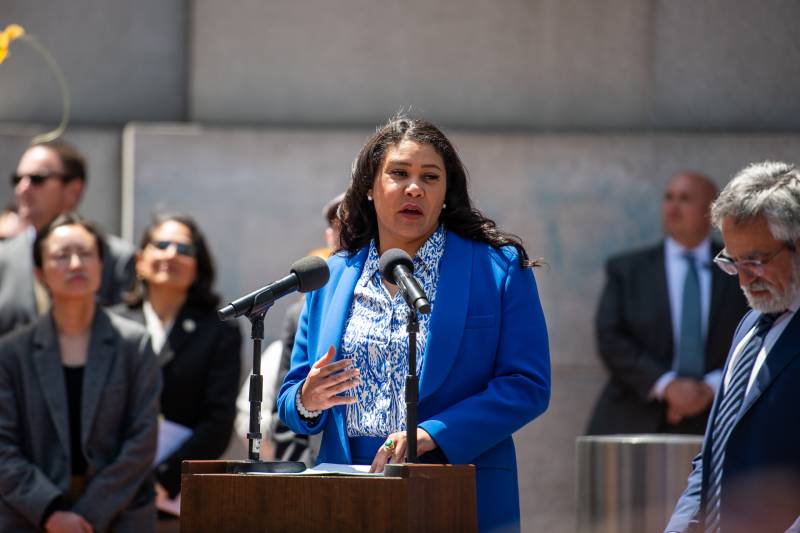San Francisco Mayor London Breed wants to require residents with substance-use disorders to enroll in treatment programs before being able to receive welfare funds from the city.
“We are here because we need to make a significant change,” Breed said at a press conference Tuesday morning. “No more ‘anything goes’ without accountability. No more handouts without accountability. In order to get resources from our city, you will need to be in a substance-use disorder program.”
The mayor’s announcement comes amid a notable uptick in overdose deaths in San Francisco this year — with 563 reported through August — putting the city on track to have its deadliest overdose year on record, according to data from the city’s Office of the Chief Medical Examiner.

